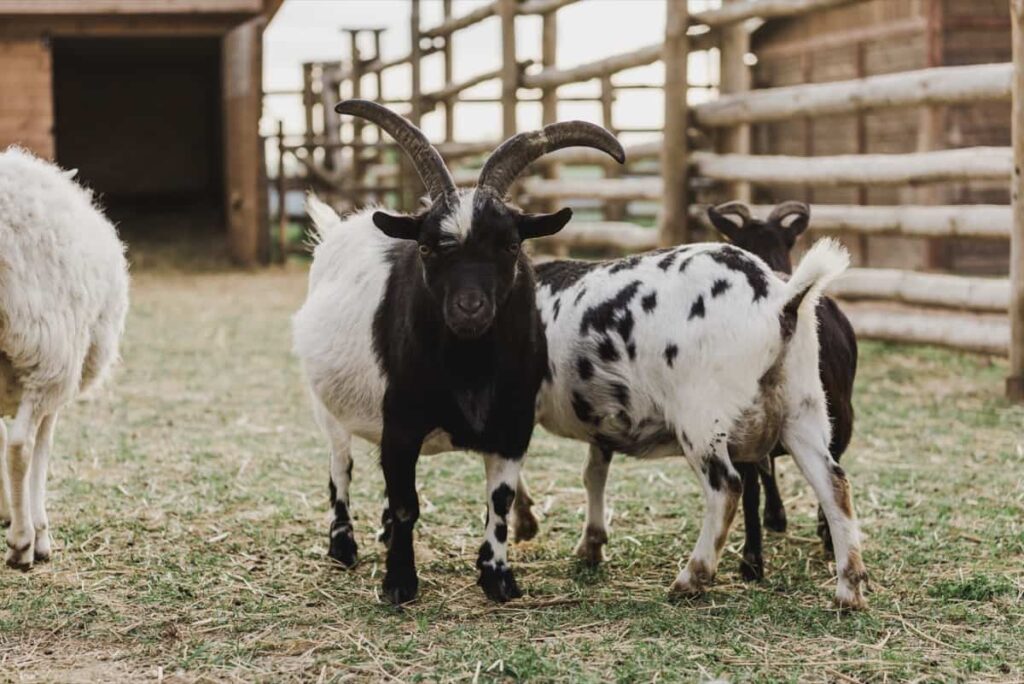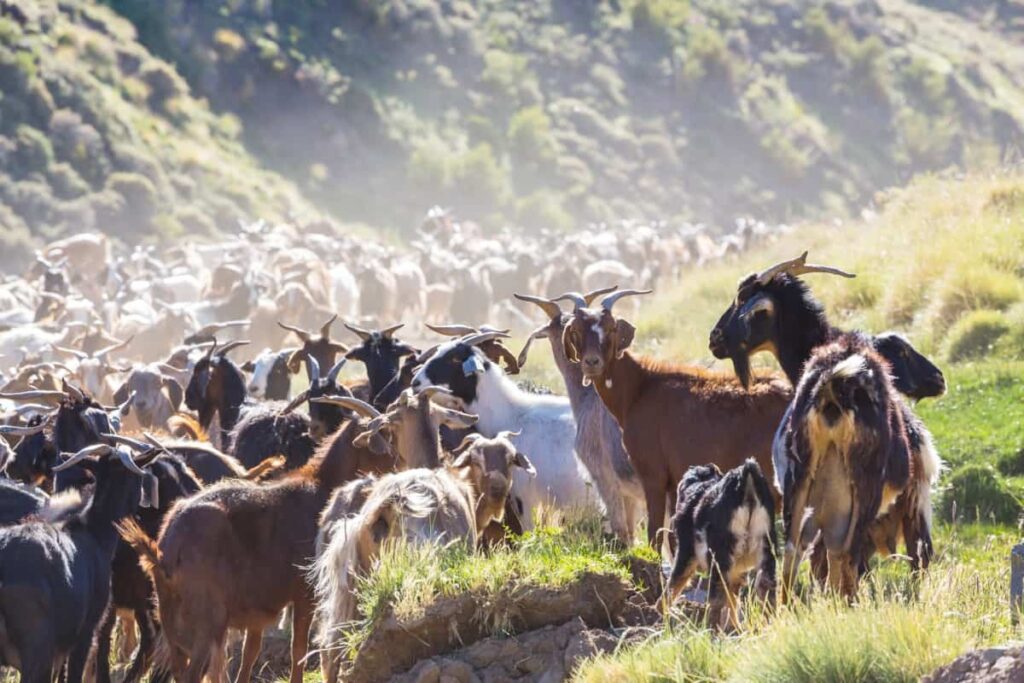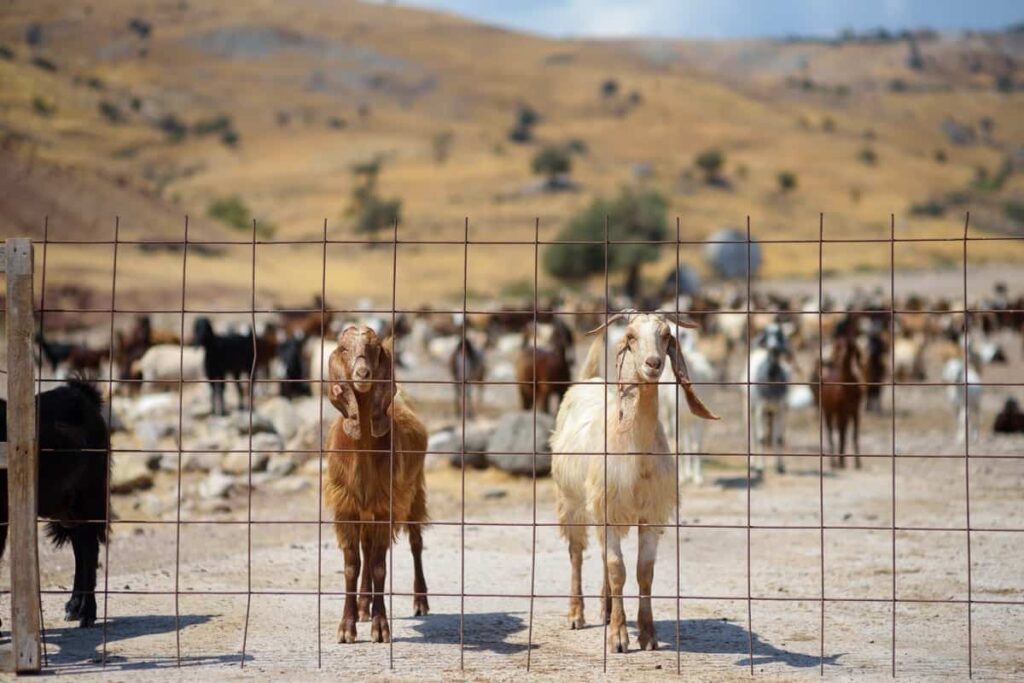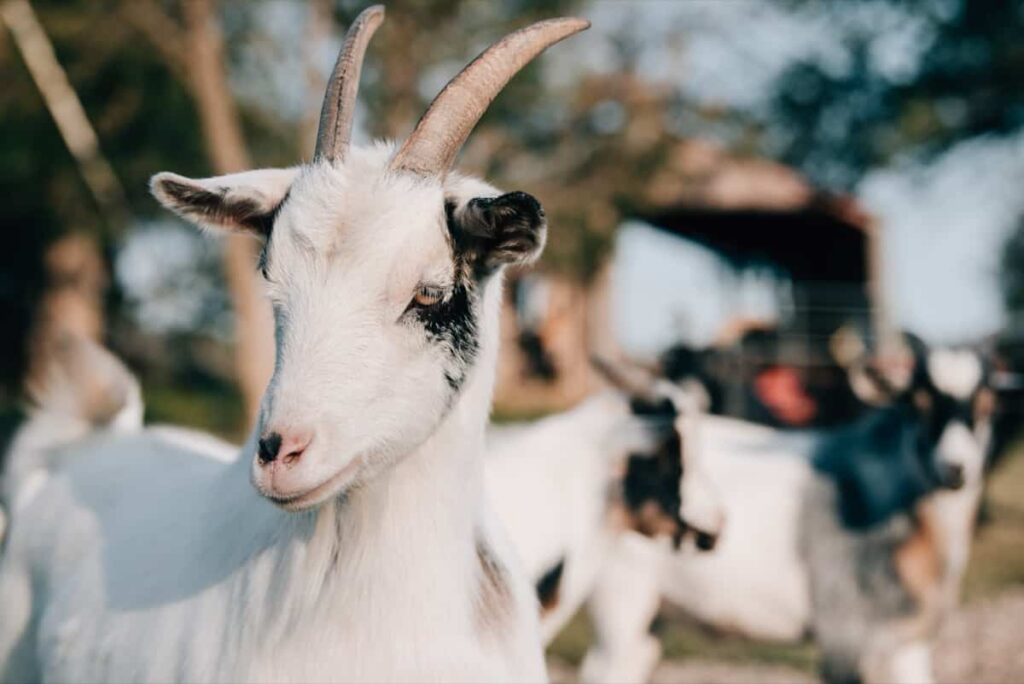Goat farming holds great importance in Nigeria due to various reasons. It is a sustainable and profitable agricultural venture that can contribute significantly to the country’s economy. The advantage of goat farming is its relatively low cost compared to other livestock ventures. Goats require less space and feed than larger animals like cattle or sheep. Additionally, they reproduce quickly, with shorter gestation periods leading to higher production rates.

The goat farming industry in Nigeria has experienced significant growth over the years. Goats are a popular livestock choice for many farmers due to their adaptability, low maintenance requirements, and high reproductive rates. Understanding your purpose of raising goat farming in Nigeria. Next, consider the financial aspects of your venture. Calculate how much capital you need to start and operate your goat farm successfully.
10 Steps to Start Goat Farming in Nigeria
Developing a Comprehensive Business Plan for Goat Farming in Nigeria
Goat farming is crucial to Nigeria’s economy as it provides employment opportunities and contributes to food security. It is essential to have a comprehensive business plan before venturing into goat farming. This includes identifying your target market, assessing competition levels, determining financial requirements, and setting realistic goals. How profitable is goat farming in Nigeria? Goat farming in Nigeria has proven to be profitable for many farmers. With the increasing demand for goat meat and milk, this industry has great potential for growth and profitability.
Acquiring Suitable Land and Infrastructure for Goat Farming in Nigeria
The right location plays an important role in goat farm setup in Nigeria. When looking for land, consider factors such as accessibility to markets, availability of water sources, proximity to veterinary services, and soil suitability for grazing. Adequate shelter should also be provided, with sturdy structures that withstand harsh weather conditions.
Investing in good infrastructure will help optimize your goat farming operations. This includes constructing separate housing units for different age groups or breeds, providing clean drinking water troughs or automated watering systems, and installing feeding areas with easy access to quality feed storage facilities.
Best Breeds to Start Goat Farming in Nigeria
You must carefully select the best goat breed for farming in Nigeria for your breeding program. In Nigeria, some popular breeds include Sahelian (Sh), Red Sokoto (RS), West African Dwarf (WAD), Boer goat Bornu Red, West African long-legged goat, and Kano Brown. Each breed has unique characteristics and suitability for specific purposes such as meat production or milk yield.
Establishing a Goat Breeding Program in Nigeria
To ensure the success of goat farming in Nigeria, it is crucial to establish a well-planned and efficient breeding program. This will help you maintain a sustainable herd and improve the quality of your goats over time. Next, design an effective mating system that ensures optimal reproduction rates. Depending on your resources, you can opt for natural mating or artificial insemination techniques. Regular goat veterinary check-ups are important to monitor the health status of your breeding goats. Vaccinations should be administered timely to prevent common diseases.
In case you missed it: 10 Best Herbal Remedies for Goat Deworming

Feeding and Nutrition Practices for Goats in Nigeria
Feeding and nutrition practices play a crucial role in the success of goat farming in Nigeria. Proper nutrition ensures healthy growth, high productivity, and overall well-being of the goats. Goats are herbivores, and their diet mainly consists of grasses, shrubs, leaves, and agricultural byproducts such as corn stalks or rice straw. In addition to forage-based feed, providing mineral supplements is also important to meet their nutritional requirements. Clean water helps with digestion and improves overall health.
Disease Management in Your Goat Farm in Nigeria
As a farmer, it’s important to understand the common diseases that can affect your goats and take necessary preventive measures. Regular health check-ups and vaccinations are essential for maintaining the overall well-being of your herd. One common disease that farmers need to be aware of is Peste des Petits Ruminants (PPR). Vaccination against PPR is recommended to protect your herd from this devastating disease.
Another disease is Foot-and-Mouth Disease (FMD). This viral infection affects cloven-hoofed animals, including goats. Good hygiene practices, regular disinfection of premises, and vaccination programs can help prevent FMD outbreaks on your farm. Maintaining proper sanitation in the housing area is vital for preventing the spread of diseases among your goats.
Market Research and Feasibility Study for Goat Farming in Nigeria
Conducting thorough market research will give you insights into the demand for goat products, competition, pricing trends, and potential customers. During your market research, gather information on the current supply and demand for goats in Nigeria. Analyze the target market to determine if there is sufficient demand for your goat products.
Consider population size, income levels, cultural preferences, and dietary habits. Additionally, conducting a feasibility study helps identify potential operational challenges or obstacles. It enables you to develop contingency plans to mitigate these risks effectively.
Securing the Necessary Licenses and Permits for Goat Farming in Nigeria
You must obtain a business registration certificate from the Corporate Affairs Commission (CAC). This document officially registers your goat farming enterprise and gives it legal recognition. Additionally, it is important to register with relevant agricultural bodies such as the Federal Ministry of Agriculture and Rural Development or state-level agriculture departments.
You may need an environmental permit if your farm exceeds a certain size or your area has specific zoning restrictions. Depending on the scale of your operation, you might also need clearance from other regulatory bodies like the NAFDAC (National Agency for Food and Drug Administration Control) if you plan to produce value-added products using goat milk or meat.
Marketing and Selling Your Goat Products in Nigeria
Local farmers’ markets or agricultural fairs are one effective way to market your goat products in Nigeria. These events attract many customers interested in purchasing fresh and locally produced goods. Setting up an attractive display booth with samples of your goat meat, milk, cheese, or other products can entice potential buyers. Social media platforms about goat farms can be important tools for promoting your business.
In case you missed it: Best Home Remedies for Sick Goats: Natural Treatment Tips

Encourage followers to visit your farm or place orders online. Collaborating with restaurants and hotels specializing in serving organic or specialty meats is another avenue worth exploring. Invest in eye-catching labels that highlight the unique qualities of Nigerian-sourced goat products.
Summary of Goat Farming in Nigeria
| Steps to Start Goat Farming | Description |
| Understand the Goat Framing Industry | Rearing goats for various purposes such as meat, milk, and fiber production |
| Comprehensive business plan | Identifying your target market, assessing competition levels, determining financial requirements, and setting realistic goals |
| Choose Right Location | Consider factors such as accessibility to markets, availability of water sources, and proximity to veterinary services. |
| Best Goat Breeds | Sahelian (Sh), Red Sokoto (RS), West African Dwarf (WAD), Boer goat, Bornu Red, West African long-legged goat, Kano Brown |
| Establishing Goat Breeding | Select breeding stock based on desired traits and productivity goals. |
| Feeding and Nutrition Practices | Provide balanced diets and clean water. |
| Disease Management | Implement preventive measures such as vaccinations, regular deworming, and proper sanitation practices. |
| Market Research & Feasibility Study | Identify demand patterns and assess competition before starting your farm. |
| Licenses & Permits | Obtain licenses from relevant authorities to ensure compliance with regulations. |
| Marketing & Selling Your Products | Explore marketing channels like local markets or direct sales to wholesalers or retailers. |
Cost and Investment to Start a goat farm in Nigeria
Starting a goat farm in Nigeria can be a lucrative business venture, but knowing the cost and investment involved is important. The investment to start goat farming in Nigeria ranges from ₦1,00,000 to ₦5,00,000, depending on your location.
Goat Prices in Local Markets of Nigeria
Goat prices in local markets of Nigeria can change depending on various factors such as the breed, age, and size of the goat. In general, prices of goats range from ₦5,000 to ₦30,000. When it comes to buying goats for your farm or meat production purposes, it’s important to consider the quality and health of the animals. You may find cheaper goats in some markets, but be cautious as they might not be in good condition.
In case you missed it: How Much Space Do You Need for 100 Goats: Estimate for 200, 300, 400, 500, and 1000 Goats

List of Goat Farms in Nigeria
| Goat Farms | Benefits |
| Toyin’s Agro Business Concept | Offers high-quality goats suitable for meat production or dairy purposes. |
| Beeleejay Livestock Enterprises | Provides healthy and well-cared-for goats |
| Topnotch Farm | Producing superior quality goats through careful selection and breeding techniques. |
| Apase Farm | Rearing West African Dwarf (WAD) goats are known for their adaptability to various climatic conditions. |
| Enomfon Enterprises | breeding Sahelian and Red Sokoto (RS) goats for their meat productivity. |
| Favored Chris Agro Farms | Raising Boer goats is recognized worldwide for their fast growth and high fertility rates. |
| Divine Grace Farm | Produces healthy WAD goats while promoting sustainability. |
| Lape Farm | Kano Brown breed rearing focuses on providing premium-quality animals. |
| AgroKing De Asher Ltd | Breeding West African long-legged goats to maintain good yields of milk and meat. |
| GB SANE FARMS and Consultancy Services Limited | Produce high-quality goats suitable for meat production or dairy purposes. |
Conclusion
Goat farming in Nigeria has been a long-standing tradition that dates back centuries. The country’s diverse climate and abundant natural resources make it an ideal location for raising goats. In recent years, the goat farming industry in Nigeria has experienced significant growth and is now recognized as a lucrative business opportunity. Nigerians have come to appreciate the importance of goat farming not only for its economic benefits but also for its nutritional value.
- Types of Grass Growing for Goat Farm
- How to Train Goats for Milking: A Beginners Guide
- Goat Milking Practices and Equipment: A Beginner’s Guide
- Goat Farming for Fiber: Producing Mohair and Cashmere
- Maximizing Goat Milk Production: Tips for Dairy Goat Farmers
- Goat Farming as a Family Business: Strategies for Success
- Profitable Kenya Goat Breeds for Commercial Dairy and Meat Business
- Unlock the Secrets of Oberhasli Goat: Discover Raising and Management Practices
- Ultimate Guide to Myotonic Goats: Explore Profile to Raising
Hello,
Found the information on this site useful. I want to start a goat farm in Nigeria and I will need support with relevant information to be able to start the business and run it well.
I found it very interesting.
Beautiful and insightful. Thanks for putting this in the right place.
The information is this site has been helpful. This has helped to realized that my decision to go into goat farming is right. Thanks so much for the information provided.